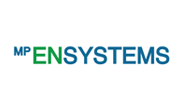The electricity requirement and peak demand in India are increasing rapidly due to rapid urbanisation, improved economic conditions, and increasing ownership of electrical appliances. To meet India’s electricity demand sustainably, India aims to attain 500 GW of total installed capacity from non-fossil fuel-based energy sources by 2030. The majority of clean energy added to the grid will come from variable renewable power plants, with a likely 50 per cent share in the generation mix by 2029-30. As the renewable generation is mostly dependent on weather conditions and usually does not align with the peak of electricity demand, a high share in the generation mix can create a potential supply-demand mismatch, causing grid imbalance or unpredictable power price fluctuation. Therefore, Demand Flexibility (DF) can quickly aid in shaping demand profiles to better match generation profiles by allowing electricity demand to respond strategically to grid conditions, which is enabled through technological and incentive tools. DF can facilitate DISCOMs to reduce peak demand and electricity costs, provide affordable and reliable power quality to customers, and reduce fossil-based electricity generation requirements.
However, DF remains a relatively new concept in India, necessitating ongoing discussions and persistent efforts to persuade key decision-makers about its benefits and implementation. Given the significant potential of DF in India, this Working Group (WG) aims to serve as a platform for unlocking this potential, enhancing electricity management, and safeguarding the country’s energy security. The WG, led by the AEEE members, will function as a facilitator for ecosystem development and support market enablement for DF in India, focusing primarily on the following objectives:
- Identify existing challenges and potential opportunities for implementing DF in India as a cost-effective strategy.
- Facilitate the evolution of DF into a service industry by engaging various stakeholders such as regulatory commissions, DISCOMS, industry and energy sector experts.








